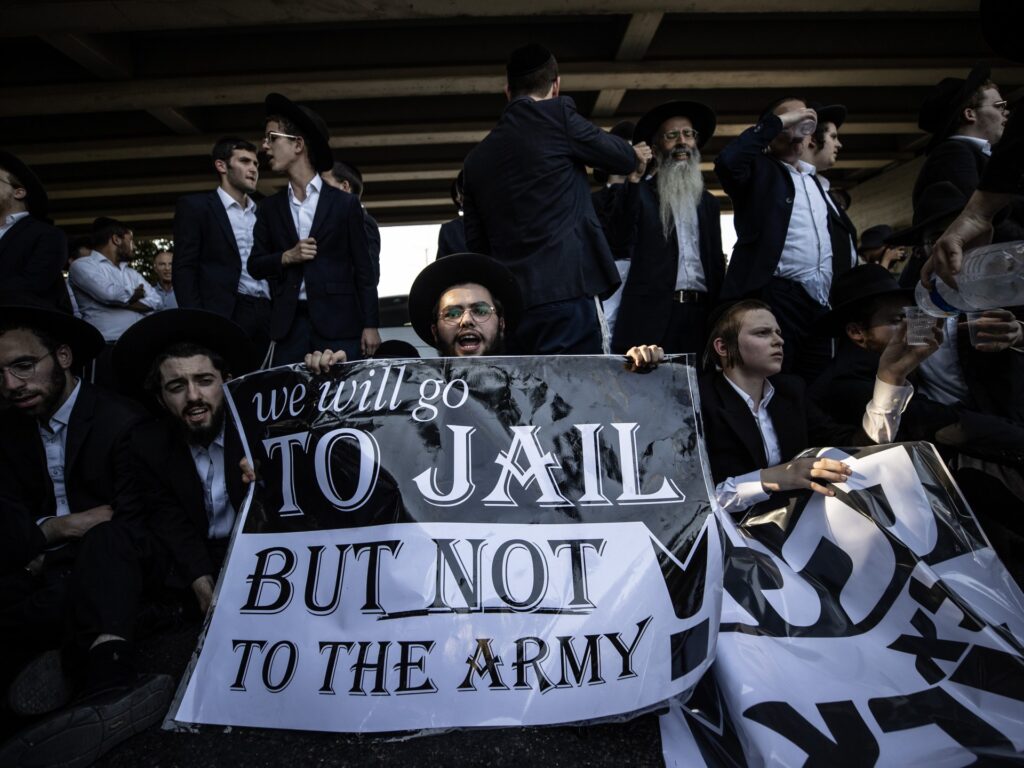The British newspaper The Times said that pressure has been steadily increasing on the Israeli government since the Al-Aqsa flood on October 7, 2023, to recruit religiously extremist Jews from the Haredi sect, who represent 13% of the population, and about 18% of Jews who are 18 years old.
Last June, the Supreme Court in Israel ruled that Haredi Jews cannot be exempted from military service. It also ordered a freeze on the budget of religious schools, and said in its decision that there is no legal basis to prevent the government from recruiting Haredi Jews into the Israeli army.
According to the newspaper, this issue posed a threat to cause a rift in the “fragile” ruling coalition headed by Benjamin Netanyahu, which relies on the HaTorah Judaism party – that is, the United Torah Party – the junior partner in the government that strongly opposes extending conscription.
David Ben-Gurion, the first Prime Minister of Israel, was the first to exempt 400 Haredim who were receiving their education in Jewish religious schools from military service. The newspaper pointed out that the decision had little practical impact at that time.
But the matter changed more than a year after the Palestinian resistance movement (Hamas) attacked Israel, as the issue of their exemption began to raise problems while its army was in dire need of soldiers to fight on two fronts against Hamas and the Lebanese Hezbollah movement, according to what was stated in the report.
This month, the new Israeli Defense Minister, Yisrael Katz, agreed to recruit 7,000 ultra-Orthodox Haredim. In response, prominent Haredi figures accused Netanyahu’s Likud Party of “declaring war” on their community.
The newspaper pointed out that last week, the Israeli army issued 1,125 arrest warrants against Haredi recruits who did not respond to compulsory conscription orders.
Hamami: Only those who were born religious know the dilemma we are in. If you are not religious and do not adhere to the laws of Jewish tradition, you will never understand us.
In the midst of growing tensions, the newspaper quoted many Haredim in Bnei Brik – an ultra-Orthodox town located east of Tel Aviv – as saying that they feel misunderstood by the rest of the Israelis, who describe them as draft evaders to avoid the horrors of war rather than considering them “genuinely” cut off. To study the Torah.
Moshe Hamami, 38, a Haredi men’s clothing merchant, told The Times that he understands both sides, “those who think we should go to the army and those who want to study Torah.”
He added, “Only those who were born religious know the dilemma we are in. If you are not religious and do not adhere to the laws of Jewish tradition, you will never understand us.”




